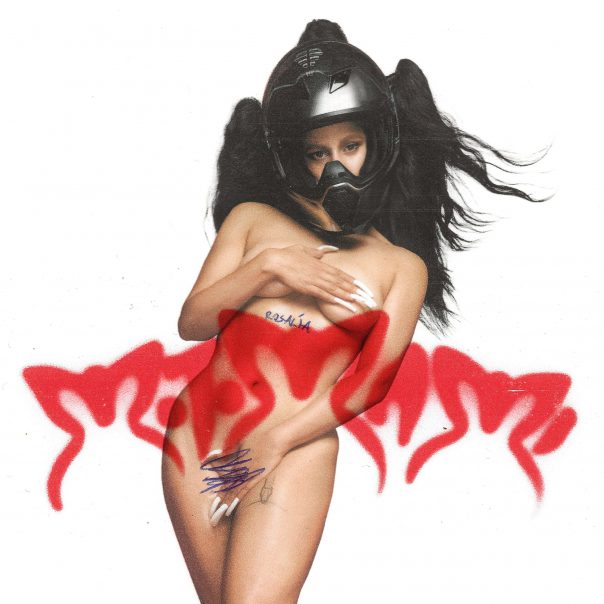ALBUM REVIEW: Rosalía shows a dualistic nature on ‘MOTOMAMI’

Rosalía, “MOTOMAMI.”
Grammy-winning artist Rosalía is a brilliant, first-rate storyteller. Her new album, MOTOMAMI, is a modern paragon full of experimentation and an unbosoming of the Spanish artist’s self-image. Many will look back on this album and reference it as a driving force behind the evolution of Latin—and perhaps global—music. Even though the entire album is in Spanish (spare a few lyrics in English) the album aims to transcend and provide mass appeal.
MOTOMAMI
Rosalía
Columbia, March 18
9/10
The title of the album is revealing of the dualistic nature that inspired Rosalía. MOTO refers to the aggressive side of femininity, while MAMI touches on a softer, more connected energy. There’s plenty of both themes to be found.
She pulls from old-school reggaeton roots and includes heavy drumming with a deep synthesizer on “SAOKO.” “I’m very much me, I transform/ A butterfly, I transform … I contradict myself, I transform/ I’m everything, I transform,” she raps. True to form, the song takes a brief pause and transforms into a jazzy improvisation on the piano before returning to the original beat.
“CANDY” follows the reggaeton road with a softer tune about love and sexuality. “Dancing to Plan B’s Candy/ That’s how you fell in love with me/ The day I met you,” Rosalía sings. She doubles down on the motif of sexuality with “HENTAI” and sings a ballad over a slow, melancholic piano: “In love with your pistol/ Poppy red/ Crash this wave/ Almost controls me.”
“LA FAMA” features The Weeknd, who sings beautifully—if not naturally—in Spanish. The track contains elements of bachata and features a guitar with a Latin percussion conga. Rosalía tells the timeless story of fame. “Fame’s a lousy lover and won’t ever love you for real/ Too much of a back stabber who comes as easy as she goes,” she sings. The pair form a dramatic and passionate duet.
“BULERÍAS” shows off the artist’s vocal range over a percussive flamenco rhythm. Rosalía’s angelic and siren-like voice travels deep into her flamenco roots when she sings, “I’m as much of a cantaora [flamenco singer]/ When I’m wearing a Versace tracksuit/ Or dressed like a bailaora.”
“CHICKEN TERIYAKI” is another reggaeton-influenced number that’s all about living the highlife. Her lyrics paint a picture of what it’s like to live large at the top of the game. Example one: “Fame’s a prison sentence, but tell me what other girl’s gonna buy yo’ dinner.” Or, there’s: “In New York visiting my jeweler/ He just wants cash and I give him my money.”
Rosalía belts out in a romantic, operatic tone on “DELIRIO DE GRANDEZA.” The song is both an ode to Caribbean salsa and a fusion of Cuban singer Justo Betancourt’s 1968 hit by the same name with a verse by Soulja Boy in Vistoso Bosses 2009 song “Delirious.” The vocals are layered here.
“I hope that with righteous time/ You’ll come back looking for a dream of love/ And you’ll come back to me, that’s what I hope/ That’s what I hope, heartless woman,” she sings over the Soulja Boy verse. “Man it’s ridiculous I got you so delirious. Kiss me through the phone, While I lick you just like licorice.” It’s an effortless transmutation of styles old and new that defines new musical territory.
MOTOMAMI has a little bit of everything for everyone. Listeners could find themselves crying, dancing and then fantasizing about erotic adventures in the span of three songs. Rosalía pulls from several different cultures to produce a masterful assemblage of influences that melt together into a new sound.
